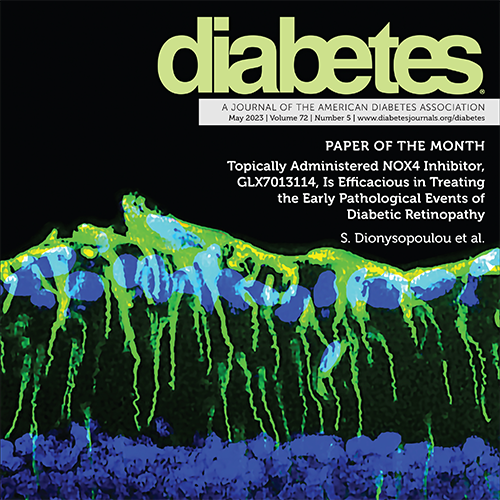In May 2023, the esteemed Diabetes journal, recognized for its leading role in disseminating key research in the field, featured an in-depth look at our work on the NOX4 inhibitor, GLX7013114. This research delves into the promising role of GLX7013114 in combatting diabetic retinopathy, a major health concern worldwide.
This recognition serves as a testament to our unwavering dedication to developing therapeutic solutions and highlights the significant progress we have achieved in unraveling the complexities of this challenging condition. Our commitment is reflected in our rigorous research approach and our efforts to bring forward new insights and treatments for diabetic retinopathy.
As our study graced the cover, it not only emphasized the importance of our findings but also positioned Glucox Biotech at the forefront of innovative research in diabetes-related complications.





